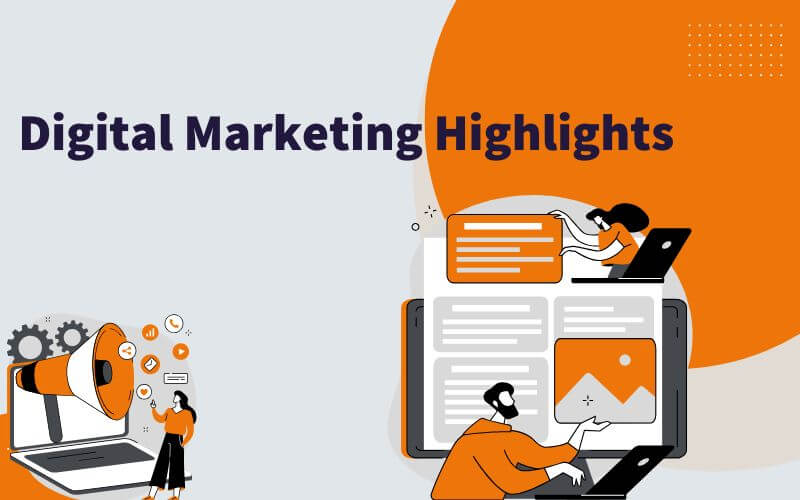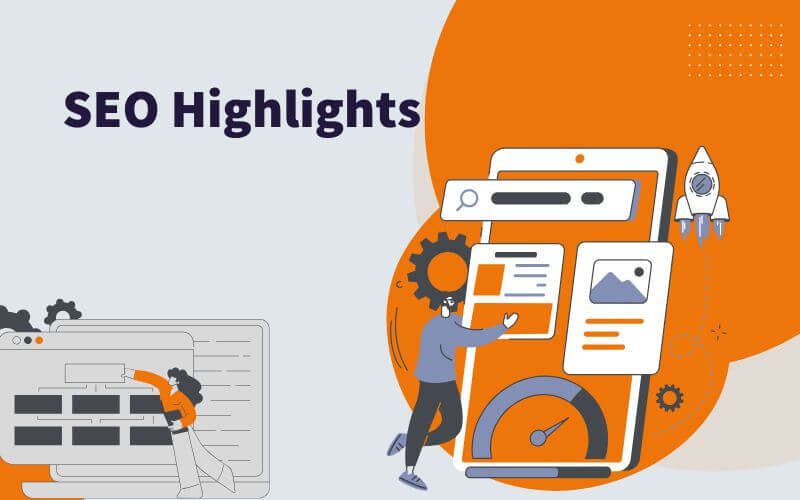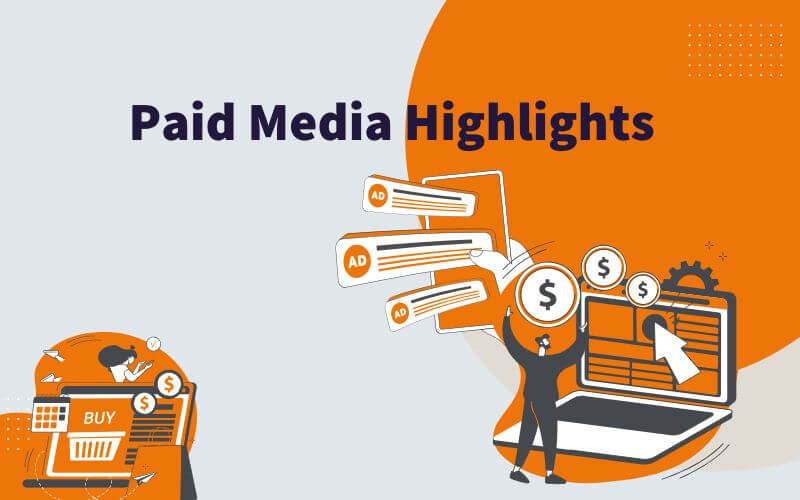Emir is an invaluable member of our team, serving as one of our esteemed Account Managers. With a profound passion for on-page SEO, he possesses an exceptional talent for discovering innovative ways to optimise websites and enhance their rankings. Joining our organisation, Loop, in 2022, Emir brought with him a wealth of expertise gained from his Bachelor's degree in Marketing Management and Advertising. Currently, he is eagerly pursuing his Master's degree in International Marketing Strategy, further enhancing his comprehensive understanding of the global marketing landscape. Emir thrives on challenges and continuously seeks fresh opportunities to elevate our clients' businesses to new heights. Aside from his professional endeavours, Emir has an unwavering passion for culinary arts and loves to cook up a storm. This ardour for cooking exemplifies his drive, creativity, and meticulous attention to detail, qualities that seamlessly translate into his work as a Digital Marketing Executive. His commitment to delivering exceptional results and his genuine enthusiasm for each project make him a trusted and highly sought-after professional. Emir's profound expertise in on-page SEO, combined with his ambitious pursuit of knowledge and dedication to his clients, make him an invaluable asset to our team. His passion, both in and out of the office, reflects his commitment to excellence, leaving an indelible mark on our clients' businesses.
Posted on 31/10/2025 by Emir Haskic
Loop Digital October Digital Marketing Industry Update 2025
Read time: 10 mins
Is AI search becoming the new battleground for digital visibility?
October 2025 has delivered a watershed moment in digital marketing, defined by OpenAI’s bold entry into the browser market and the acceleration of AI-driven commerce. This month’s developments signal a fundamental shift in how consumers discover, evaluate, and purchase products online.
The standout story centres on ChatGPT Atlas, OpenAI’s first web browser, which brings conversational AI directly into browsing, whilst raising serious ad fraud concerns. Simultaneously, Instant Checkout within ChatGPT marks the beginning of agentic commerce, where AI systems act as purchasing agents on behalf of consumers.
The overarching theme of October 2025 is transformation through AI integration. Businesses must now optimise not just for search engines, but for AI agents that mediate the entire customer journey.
Digital Marketing Highlights

OpenAI Expands with ChatGPT Atlas Browser and Instant Checkout
OpenAI has unveiled two major innovations: ChatGPT Atlas, a new AI-powered browser for Mac, and Instant Checkout, a commerce feature within ChatGPT.
ChatGPT Atlas integrates conversational AI directly into the browser’s address bar, blending search and chat seamlessly. Interestingly, it’s powered by Google Search, not Microsoft Bing, and displays ChatGPT-style summaries alongside traditional Google results. The browser also supports features like Gmail content rewriting, personalisation, and agentic tools for tasks, coding, and shopping. Versions for Windows, iOS, and Android are in development.
Meanwhile, Instant Checkout allows U.S. users to complete Etsy purchases directly within ChatGPT. Acting as a shopping agent, ChatGPT handles discovery, comparison, and payment without visiting retailer sites. Shopify integration is next, signalling a new era of agentic commerce where visibility within AI systems becomes as vital as traditional SEO.
Google Search Console Performance Report Faces Delays
Google Search Console’s performance report experienced significant delays in October, with data frozen on 19th October for several days. The issue affected all profiles, preventing businesses from accessing recent performance metrics.
Google’s team confirmed the system was “catching up,” though 24-hour data views continued showing recent information. The delays highlight the risks of dependence on single platforms for performance measurement, emphasising the value of diversified analytics approaches.
Google Search Disruption Highlights Infrastructure Fragility
Google experienced a three-day service disruption between 3rd and 6th October due to data centre issues. The incident impacted search functionality across certain locales, affecting the serving of some pages in specific regions.
For businesses, the disruption served as a reminder of the risks inherent in heavy dependence on single platforms. The incident underscored the importance of diversified traffic sources and contingency planning.
PepsiCo and VaynerMedia Pioneer Co-Sourcing Model
PepsiCo has expanded its relationship with VaynerMedia through an innovative “co-sourcing” approach that integrates the agency’s expertise directly with internal teams. This model addresses social media’s demanding content velocity whilst maintaining brand strategy.
Since implementing co-sourcing, PepsiCo has tripled content output, with engagement jumping 50-70% depending on brand. Tasks requiring a month now complete in two to three days. Mug Root Beer achieved 50% year-over-year growth and is on track to become PepsiCo’s fourth-largest beverage property.
This model represents an alternative to traditional in-house versus outsource debates, creating relationships where agencies and internal teams share KPIs and operate with startup-like speed.
Marketers Challenge Gen Z Brand Loyalty Myths
Senior marketers at Advertising Week New York pushed back against narratives that Gen Z lacks brand loyalty. CMOs from Hilton, Bose, H&R Block, and EOS Products argued these assumptions miss the nuances of a generation that often displays intense brand devotion.
Gen Z is actually 30% more likely to remain loyal to one brand across product categories, according to EOS research. The challenge isn’t Gen Z’s aversion to marketing, but creating content that resonates with a highly selective audience.
Successful Gen Z marketing prioritises entertaining and emotionally resonant content over traditional advertising. H&R Block’s “Responsibility Island” reality TV parody exemplified this approach, generating massive engagement through genuine entertainment rather than promotional content.
Google Business Profile Tests Cross-Location Posting
Google is testing a feature enabling businesses to share updates across multiple Business Profiles simultaneously. After publishing an update, a “Copy post” dialogue allows selection of which profiles receive the same content.
For multi-location businesses, this could save considerable time whilst maintaining messaging consistency. However, businesses should verify updates remain locally relevant, as what’s appropriate for one market may not resonate in another.
Microsoft Redesigns Bing Places for Business
Microsoft launched a rebuilt Bing Places for Business platform at bing.com/forbusiness. The redesign introduces a streamlined Google Business Profile import, particularly beneficial for multi-location brands and agencies.
A new Recommendation Tool evaluates listing health and suggests improvements, including photos, links, hours, and category-specific items. Microsoft has indicated further updates will include deeper Bing Maps and Copilot integrations.
SEO Highlights

Reddit Sues Multiple Companies Over Data Scraping
Reddit has sued four companies, including Perplexity and SerpApi, accusing them of illegally scraping Reddit content via Google search results. Reddit claims it “set a trap” for Perplexity with a test post visible only to Google’s crawler, which appeared in Perplexity within hours.
The lawsuit seeks financial damages, injunctions, and a ban on using scraped data. Reddit already licenses data to OpenAI and Google, but argues others sidestep authorised arrangements. The case highlights growing tensions around data access in the AI era.
Hyundai Adapts Marketing for AI-Driven Search
Hyundai has restructured its search approach to accommodate AI-driven discovery, shifting from search distribution to search engagement. Rather than optimising for clicks and traffic volume, Hyundai focuses on creating informed and engaged consumers through AI interactions.
The company recognises that whilst AI-driven search may reduce website traffic overall, it produces higher-quality prospects who arrive better educated about products. This represents a broader industry shift from keyword optimisation to conversational marketing.
ChatGPT Performs Searches in Nearly One-Third of Prompts
Research from Nectiv reveals ChatGPT triggers external searches in 31% of user prompts, averaging 2.17 searches per query. These searches average 5.48 words, roughly 60% longer than typical Google queries.
Local intent queries triggered searches 59% of the time, whilst credit card and fashion queries showed the lowest frequency at 18-19%. Common terms included “reviews,” “2025,” “features,” and “comparison,” suggesting ChatGPT prioritises fresh, review-based, and comparative content.
This creates opportunities for SEO professionals. When ChatGPT uses search to supplement knowledge, traditional optimisation techniques become relevant again.
Research Exposes AI Recency Bias Through Fake Dates
Researchers at Waseda University demonstrated that major AI models systematically favour newer content over older material, regardless of quality. By adding fake publication dates, they showed every tested model preferred artificially “newer” content.
Top-10 results shifted 1-5 years newer on average, with individual passages jumping up to 95 ranking positions when given recent dates. One in four relevance decisions flipped based solely on date.
This reinforces the importance of content freshness across AI platforms. Regular updates, even minor revisions, may become essential for maintaining AI visibility.
AI Search Citations Favour Brand-Controlled Sources
Analysis of 6.8 million citations across ChatGPT, Gemini, and Perplexity reveals 86% of AI references come from sources brands already control. This contradicts assumptions that forums like Reddit dominate AI responses.
First-party websites account for 44% of citations, business listings contribute 42%, reviews and social represent 8%, and forums comprise just 2%. These findings suggest businesses can directly influence AI search visibility through traditional SEO practices applied to owned digital properties.
Google Tests AI-Generated Search Result Descriptions
Google is experimenting with using AI to generate search result descriptions, potentially replacing traditional meta descriptions with Gemini-created summaries. Screenshots show a small Gemini logo identifying AI-generated content.
This could significantly impact click-through rates. AI-generated descriptions might emphasise different aspects than the authors intended, potentially affecting which users click through and influencing engagement metrics.
Paid Media Highlights

Google Maps Ads Gain Scrollable Sitelinks
Google has introduced scrollable sitelinks for Maps Ads, giving advertisers additional clickable real estate directly within Maps. Light blue sitelinks appear beneath promoted pins, linking users to specific pages on advertiser websites.
Advertisers need at least two sitelinks for both desktop and mobile. For businesses with multiple offerings or locations, sitelinks enable more targeted messaging based on user proximity and intent.
ChatGPT Atlas Raises Ad Fraud Concerns
Software company Search Atlas flagged a major issue: ChatGPT Atlas can click advertisements indistinguishably from real users. Because it’s built on Chrome’s foundation, ad networks perceive its activity as legitimate traffic.
Every AI click on sponsored content can trigger ad spend like a real visitor, whilst corrupting analytics data. Current detection methods cannot flag AI agents like ChatGPT Atlas. Businesses should monitor for unusual traffic spikes, odd click behaviour, or declining conversion rates.
Google Ads Introduces Image Quality Flagging
Google Ads has added automated image quality checks to its Recommendations tab, identifying low-performing visuals and suggesting improvements. The system provides actionable suggestions with preview capabilities directly within the dashboard.
This reflects Google’s increasing emphasis on creative quality as a performance driver. Acting on recommendations could improve engagement metrics and ad placement quality across Google’s networks.
Google Analytics Enables Meta and TikTok Cost Data Import
Google Analytics introduced native integrations for automatically importing cost data from Meta and TikTok. The integrations pull up to 24 months of historical data, providing long-term performance perspectives.
This transforms Google Analytics into a more complete hub for paid media analysis, reducing data silos. Marketers can now compare efficiency between Google, Meta, and TikTok campaigns within a unified interface.
Performance Max Gains Enhanced Asset and Channel Reporting
Google rolled out significant Performance Max reporting improvements, introducing new segmentation options and transparency features. Asset reporting can now be broken down by device, time, conversions, and networks.
Channel performance reporting adds cost visualisation, ROI columns, and diagnostic information. These enhancements address advertiser demands for greater transparency, making it easier to see how different assets and channels contribute to results.
DOJ and Google Conclude Ad Tech Monopoly Hearing
The Justice Department and Google wrapped a two-week antitrust hearing on Google’s alleged ad tech monopoly. The DOJ argues that only structural divestiture can restore competition, whilst Google contends a breakup would disrupt publishers and advertisers.
Closing arguments are scheduled for November, with a ruling expected in early 2026. The outcome could reshape digital advertising, potentially increasing competition, altering pricing, and changing access to key advertising tools.
Web and Design Highlights

Critical WordPress Security Vulnerabilities Demand Action
October brought multiple significant WordPress security vulnerabilities demanding immediate attention.
An XSS vulnerability in WPBakery Page Builder (when bundled with premium themes), enabled authenticated attackers with contributor-level access to inject malicious scripts. Versions up to 8.6.1 were affected, with version 8.7 providing the fix.
WP Travel Engine Faces Critical 9.8-Rated Vulnerabilities
WP Travel Engine, installed on over 20,000 travel sites, disclosed two critical vulnerabilities, both rated 9.8 out of 10. The first enabled unauthenticated attackers to rename or delete files anywhere on the server. The second allowed unauthenticated users to include and run arbitrary PHP files.
Both affected versions up to 6.6.7. The severity ratings reflect that completely unauthenticated attackers could compromise sites, making rapid updates essential.
WP Engine Legal Battle Intensifies With Amended Complaint
WP Engine filed a Second Amended Complaint addressing issues from the court’s September ruling. The 175-page complaint defines four relevant markets where Automattic allegedly exercises monopoly power.
The complaint adds detailed allegations of exclusionary conduct, including blocking WP Engine’s WordPress.org access and pressuring plugin developers. Six counts were refiled with enhanced allegations. The outcome could establish important precedents for open-source platform governance.
WordPress 6.8.3 Addresses Security Issues
WordPress released version 6.8.3 as a security update featuring two critical fixes: a data exposure issue where authenticated users could access restricted content, and a cross-site scripting vulnerability in navigation menus.
As a security release, immediate updating was warranted across all installations. The WordPress team backported fixes to all eligible branches, extending back to version 4.7.
Stay Ahead of Digital Marketing’s Evolution
October 2025’s developments represent profound opportunities for businesses prepared to embrace AI-mediated customer journeys.
From ChatGPT’s browser and commerce capabilities to Google’s AI-driven search evolution, these changes create new pathways for audience engagement.
Subscribe to our email newsletter for expert analysis and actionable recommendations that keep your business competitive. For optimising for AI search visibility, preparing for agentic commerce, or strengthening WordPress security, our updates ensure you’re positioned to capitalise on emerging opportunities.
Get Expert Support from Loop Digital
Ready to leverage October’s digital marketing innovations for your business growth? The evolving AI landscape and new commerce capabilities create unprecedented opportunities for businesses prepared to adapt.
Book your FREE 30-minute consultation with our team today. Discover how our tailored solutions help businesses capitalise on AI search optimisation, develop effective agentic commerce strategies, and maintain competitive advantages.
Looking for your next opportunity?
Digital marketing careers
We’re always on the lookout for talented individuals to join our ever growing team. If you think you’d be a great match for Loop Digital, we’d love to hear from you.

Join 300+ business owners getting weekly growth strategies - subscribe now.
"*" indicates required fields







